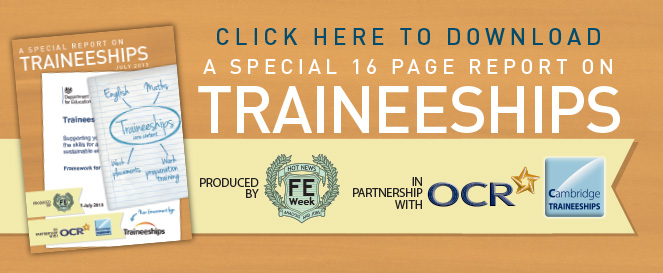The transition from unskilled to skilled could be key to answering the UK’s youth unemployment problem, explains Matthew Hancock
The German Chancellor Angela Merkel is by no means alone in regarding unemployment among young people as “the most pressing European problem”.
However, in Germany the rates of youth unemployment are far lower than most of its European counterparts.
One reason may be that in Germany, where the majority of teenagers either go to university or into an apprenticeship, there are far fewer unskilled young people.
We want to follow Germany’s lead and raise the importance of vocational education. So right from May 2010 onwards, the coalition has invested unprecedented effort and resources in increasing the number and quality of apprenticeships available to help set our young people on the path towards fulfilling careers.
Now, with some 1.3m new jobs having been created in the private sector over the past three years, and the latest surveys by the British Chambers of Commerce and others showing confidence returning to British business, it is no time to relax those efforts.
It is indeed the right time to redouble our efforts to ensure that as many of our young people as possible are well prepared to take advantage of the opportunities that recovery is bringing as it takes hold.
Last month, this was clearly recognised in Chancellor George Osborne’s spending review, which not only protected funding for apprenticeships, but also announced the extension of the new traineeships programme for young people aged up to 24, as well as 16 to 19-year-olds.
Traineeships are designed to give young people the skills and wherewithal to hold down an apprenticeship or a permanent job. For large numbers of our youngsters, that transition has never been easy. The Chancellor’s announcement will mean that more will be able to get practical help in overcoming it.
The key to the success of the scheme will lie in how many training providers and employers come forward”
Employers tell us that many youngsters are keen to get a foot on the employment ladder, but lack the right skills, attitudes and experience to prosper immediately in the world of work.
That is why traineeships have been designed to last up to a maximum of six months and offer young people the opportunity to undertake a substantial work placement and vocational skills training, alongside support to improve the basic skills for employment of English and maths.
Depending on the young person’s needs, a range of other support and flexible training may also be offered to help them develop and progress quickly onto an apprenticeship or into other employment.
All evidence suggests there will be substantial demand for traineeship places from motivated young people.
But the key to the success of the scheme will lie in how many training providers and employers come forward and show themselves willing to work together to offer the right kinds of opportunities.
We also need to get traineeships off to a strong start and that is why only training providers with an Ofsted rating of outstanding or good will be able to deliver them. I recognise this will be frustrating for some providers, but I am confident this approach will give them even greater incentives to improve their existing provision.
The challenge is admittedly great. The updated framework for delivering traineeships has now been published and the first learners will be admitted in August. But despite the tight timescales involved, I am confident we can rise to the challenge.
Clearly, this bodes well for all those young people who ask only to be given a chance to make good and show what they can do.
Matthew Hancock, skills minister










Your thoughts